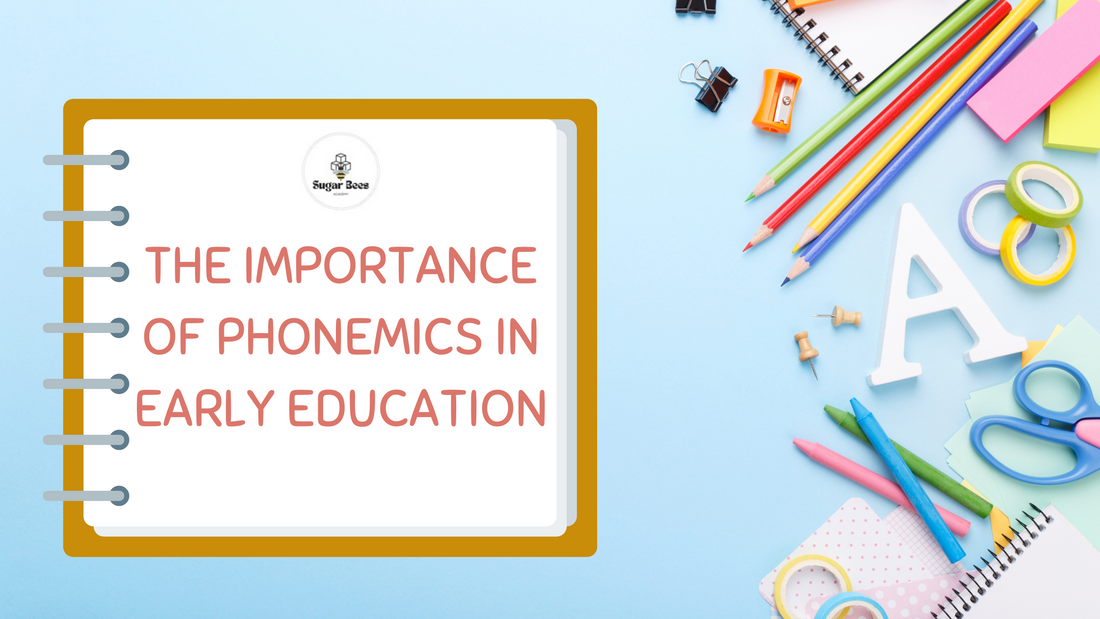
The Importance of Phonemic Awareness in Early Education
Share
As parents and educators, we often hear about the significance of early literacy skills. Among these, phonemic awareness stands out as a critical component in a child's reading development. But what exactly is phonemic awareness, and why is it so crucial? This blog post will delve into the importance of phonemic awareness in early education and provide practical strategies to enhance this skill in young learners.
What is Phonemic Awareness?
Phonemic awareness is the ability to hear, identify, and manipulate individual sounds—phonemes—in spoken words. It is a subcategory of phonological awareness, which includes recognizing larger units of sound such as words and syllables. Phonemic awareness is purely auditory and does not involve written language. For example, a child demonstrating phonemic awareness can break the word "cat" into its component sounds /k/, /æ/, and /t/.
Why is Phonemic Awareness Important?
1. Foundation for Reading and Writing: Phonemic awareness is a foundational skill that underpins reading and writing. It allows children to understand that words are made up of sounds, which they can manipulate to form new words. This understanding is critical for decoding (reading) and encoding (spelling).
2. Predictor of Reading Success: Research shows that phonemic awareness is a strong predictor of future reading success. Children who develop strong phonemic awareness skills in early childhood are more likely to become proficient readers. Conversely, those who struggle with phonemic awareness often face difficulties in learning to read.
3. Enhances Phonics Instruction: Phonemic awareness prepares children for phonics instruction, where they learn the relationship between sounds and their corresponding letters or letter combinations. Without a solid grasp of phonemic awareness, phonics instruction can be less effective, as children may not fully understand the connection between sounds and letters.
Strategies to Enhance Phonemic Awareness
1. Rhyming Games: Engage your child in rhyming games to develop their ability to hear and produce rhyming words. For example, say a word like "cat" and ask your child to come up with words that rhyme with it, such as "bat" and "hat."
2. Sound Matching: Play sound matching games where your child identifies words that begin or end with the same sound. For example, ask them to find all the words that start with the /b/ sound: ball, bat, and boat.
3. Segmentation Activities: Help your child practice breaking words into individual sounds (segmentation). Say a word slowly, emphasizing each phoneme, and ask your child to repeat the sounds. For example, "dog" becomes /d/, /o/, /g/.
4. Blending Sounds: Practice blending sounds together to form words. Say the individual sounds of a word slowly and have your child blend them together. For example, say /b/, /a/, /t/ and have your child say "bat."
5. Phoneme Deletion: Engage in phoneme deletion activities where your child removes a specific sound from a word to form a new word. For example, ask, "What word do you get if you take away the /c/ sound from 'cat'?" The answer is "at."
6. Interactive Read-Alouds: During read-aloud sessions, focus on the sounds within words. Highlight rhyming words, alliterations, and ask your child to identify the sounds they hear. This reinforces phonemic awareness in a meaningful context.
Incorporating Phonemic Awareness at Home
Daily Practice: Incorporate phonemic awareness activities into your daily routine. Short, frequent practice sessions are more effective than occasional, longer sessions.
Use Everyday Opportunities: Take advantage of everyday moments to practice phonemic awareness. For example, during car rides, play sound games like "I spy with my little eye something that starts with the sound /s/."
Make it Fun: Keep activities engaging and playful. Use songs, rhymes, and games to make learning enjoyable. Positive reinforcement and encouragement go a long way in keeping your child motivated.
Conclusion
Phonemic awareness is a vital skill in early education, serving as the building block for reading and writing. By incorporating phonemic awareness activities into your child's daily routine, you can support their literacy development and set them on the path to reading success. At Sugar Bees Academy, our LITERALEAP Literacy & Reading Program is designed to enhance these essential skills through personalized and engaging methods. Visit our website to learn more about how we can support your child's literacy journey.
For more tips and resources, visit Sugar Bees Academy and explore our comprehensive literacy programs designed to support your child’s educational journey.



